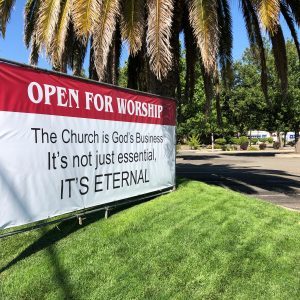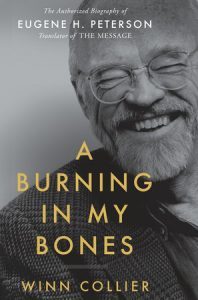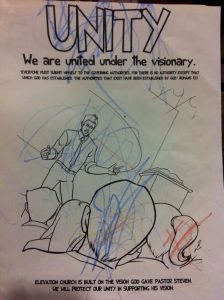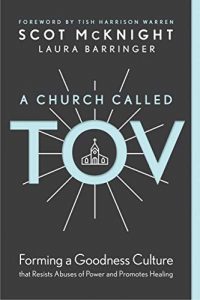Martin Holman Jr.'s Blog, page 4
February 6, 2021
The Supreme Court overrules California
California shut down in house worship services, and the Supreme Court said, “Please, open back up if you wish.” With the 25% capacity cap still in effect. The conservative court did however, let California continue to ban singing and chanting at indoor services.
Though she didn’t go as far as conservatives wanted, the newest justice, Amy Coney Barrett joined her conservative colleagues in the majority while issuing her first separate opinion.
“Of course, if a chorister can sing in a Hollywood studio but not in her church, California’s regulations cannot be viewed as neutral, but the record is uncertain, and the decisions below unfortunately shed light on the issue.”
California has a surge of Covid cases over the past three months. At 3,402,000 plus, It has a million more cases than the next closest state, Texas. It also has ten million more numbers in terms of population.
California does seem to have it in for churches compared to other gatherings, but maybe not. At least the conservative majority of the Supreme Court think so. This whole Pandemic has been very interesting to watch the church react and counteract to the states reactions. Historically the church and the state have come to blows since Constantine gave Christians official status in the Roman Empire.
Four years ago, I told some friends that the end of President Trump’s presidency was going to usher in a major battle between the two entities, and it appears in the last 3 months that is going to be likely. The question is, how much do Christians fight for our rights, and how much do we bow our heads humbly and ask God to protect our stuff or our lives?
Remember, Constantine stopped hundreds of years of persecution of Christians. This gave Christians power and permission to speak on the world stage. Ironically, presidents in the last 50 years have (slowly) stopped hundreds of years of persecution of people of color and the LGBTQIA community.
How we all react to these changes not only says who we are, but will also say what our world looks like in the next decade.
So do you think the Supreme Court made the right decision?
February 5, 2021
What I learned when AAF turned into K-love
 Last February, I opened up my newsfeed and saw the announcement. The famed Massachusetts Rock and Roll station, WAAF, was becoming a satellite feed for a Christian pop music station, K-Love. Many people around here, including a ton of my friends, loved the rock n roll giant. In truth, I cut my teeth on hard rock music in the early 2000’s listening to 107.3. For the majority of my childhood, I listened to Christian kids music, never being permitted to listen to anything with drums. Patch the Pirate and the music machine strum through my speakers growing up.
Last February, I opened up my newsfeed and saw the announcement. The famed Massachusetts Rock and Roll station, WAAF, was becoming a satellite feed for a Christian pop music station, K-Love. Many people around here, including a ton of my friends, loved the rock n roll giant. In truth, I cut my teeth on hard rock music in the early 2000’s listening to 107.3. For the majority of my childhood, I listened to Christian kids music, never being permitted to listen to anything with drums. Patch the Pirate and the music machine strum through my speakers growing up.
Then as a teenager, when most of my friends were busy listening to Guns n Roses, Poison, or Bon Jovi, I began sneaking Michael W Smith and Harry Connick Jr. (That wasn’t a typo), hiding the tape cassettes under my pillow so my parents didn’t find out. Eventually I morphed into DC Talk and Third Day like every good Christian college student did in the early 90’s.
By the time I graduated from college and moved to New England in the late 90’s, I also graduated on from Christian music in general. DC Talk moved on, so why shouldn’t I? During a particular part of my life in 2001, I remember turning on AAF randomly and hearing Linkin Park’s Crawling for the first time. I couldn’t believe how good it was, and it didn’t curse! And though it wasn’t about God and was a bit pessimistic, I didn’t believe it had questionable content. For a while I was hooked. Chevelle, Incubus, Alter Bridge, and Audioslave were only a few of the bands I listened to during that time, and AAF continued to introduce me to even more.
Over time, as I moved out of my 20’s and well into my 30’s, I tuned out of the rock station and into pop or alternative or folk or rap or country or whatever people were putting out in general. I’m no music snob, so I enjoyed each kind that came into my headphones. Also, the way music was delivered to me changed. Pandora changed the game, then Spotify and Itunes took over from there. WAAF was like a fleeting thought in my mind.
Then I heard the news. AAF was becoming K-love. I don’t care if you judge me for being disappointed when the news traveled from my newsfeed and into my eyes. Well, my first thought was, “That’s hilarious”. Then I was disappointed. I knew several of my rock and roll friends in the area, including those who were involved with AAF in the early days, were disappointed. I understood. Something that is a part of your history, when it changes, tends to disappoint.
I started listening to K love in my car and doing the dishes, and then the pandemic happened. During some of the most tumultuous times in history, I was regularly encouraging myself with K love, pop Christian music. Over time, something else happened. My kids started singing the songs like I used to sing “Wiggle worm” by Patch the Pirate or “the B-I-B-L-E, yes that’s the book for me”. They knew the songs better than me!
This morning my older kids were getting ready for school, and Zander sat on the floor in front of me playing with a blanket. He asked me to come down to the floor with him, and so I slowly crawled on to my knees and on to the floor. He grabbed my face and said “Snuggle” like he was tired and wanted to sleep in his blanket on my lap. So he did. He wrapped himself in his blanket, climbed onto my lap, and started whimpering. “Out of my hands…Take this out of my hands… Take this out of my hands. It’s out of my hands.” He sang along to Jeremy Camp.
I held him tight and told him, “Your daddy loves you, Zander. And that’s what that song is about. There are things as a child that you can’t do, and you feel frustrated, and you need help with. I’m here for you to help you and to help you get through it. But I need help too sometimes. And you and I have a heavenly Father that we can give our stuff too. We can say, “Here God, take this, because I can’t do it on my own. You’ll always be my baby Zander, but you and I will always be God’s children.”
I don’t know if four year old Zander got the message, but I hope you will.
February 3, 2021
Book Review: A Burning in my Bones
 In July of 1994, I drove to a cinema in Tucson, AZ to watch a new Tom Hanks movie called “Forrest Gump”. I watched as Forrest, an average and perhaps less than average man weaved his way into and out of the halls of history and in the midst of that journey, also watched him love, learn, create, succeed, fail, and become a person who helped me to learn a bit about myself. Forrest never had any intention of becoming anything grand, he just was, and in the midst of being Forrest Gump, in the movie anyways, he changed the world. I left the theater as a 19 year old in tears and yearning to just be me.
In July of 1994, I drove to a cinema in Tucson, AZ to watch a new Tom Hanks movie called “Forrest Gump”. I watched as Forrest, an average and perhaps less than average man weaved his way into and out of the halls of history and in the midst of that journey, also watched him love, learn, create, succeed, fail, and become a person who helped me to learn a bit about myself. Forrest never had any intention of becoming anything grand, he just was, and in the midst of being Forrest Gump, in the movie anyways, he changed the world. I left the theater as a 19 year old in tears and yearning to just be me.
This week I read an early copy of the new authorized biography of Pastor Eugene Peterson by Winn Collier. I finished yesterday and need to tell you, specifically if you’re a pastor or have a pastor’s heart, you need to read this. Admittedly, I knew little about Peterson before I read the book other than how most people know him – He authored “The Message” translation of the Bible.
Like that evening walking away from the 1994 Academy Award winner, I walked away from “A Burning in my Bones” both thrilled that I learned more about Eugene Peterson, and sullen that I never had the opportunity to meet the Pastor/Author. (Yes, I know that Forrest was not real) He clearly made an impact on the world larger than we can even know, yet constantly pushed away the accolades when they drifted his way. Humble and sweet and in some ways, naive to the world, yet profoundly impacted people to worship God like few who have gone before him. Now moving away from the Forrest Gump analogy, a few points I must address about the book and its contents:
Winn Collier’s writing frankly is out of this world. He allowed the reader to understand that this was his project, and he was permitted to enter into the Peterson’s world without coming off pretentious or preachy. His general flow is brilliant, using deep words and in some ways, I get the feeling that Collier’s love and appreciation for Peterson is every bit as deep as my love for Andy Stanley. What’s better though, is how Collier grabbed throughout the pages of this book and made me want to devour everything Peterson wrote. Currently I’ve only read “Eat his book”, which I truly loved. I congratulate Winn for his book and for being an introduction to a pastor I knew very little about before I read his biography.
In recent years, I’ve found the evangelical world, as you may have read in the Holman Report, distasteful. When someone comes out and asks questions or makes statements, no matter how humble that differ from their preferred systems, they lash out as a community, on blog posts and facebook threads, telling everyone they know how horrible that person or their work is. Peterson was not an exception here. One of the reasons why I never read Peterson or even his “Message” translation was because years ago, someone I respected came out and talked down to the work and its translator. That’s all I ever knew about Peterson until I read “Eat this book” which someone gave to me. I enjoyed the work, but not enough to get to know the author in any way. Collier does a fine job talking through Peterson’s Assembly of God background, his Presbyterian ordinations, and the world he eventually ended up in, as a respected and rejected author and mentor. I too, have been caught up with the temptations of being critical of those I don’t know, or those who may have wronged me. I am inspired by Peterson’s reactions and desire for inclusivity into the those who he knew worshiped God. There is one group of people who Jesus judged and drove out and that was those who thought themselves the most spiritual and closest to God through scripture. If it don’t change the heart, it ain’t from God.
By far the most important thing about this book is Eugene Peterson’s Legacy of being a pastor who wanted desperately to shepherd his local church and push away any notoriety that came with his books or academic prowess. In a world where pastors have desired in their hearts to be more (I have sinned in this way so much) and to have more, whether more is influence or money or numbers, Peterson’s humble qualities fund him very uncomfortable with any fame that his work brought his way. He simply wanted to pastor. That has been a lost art in recent days, and if the Christian church is going to thrive in the future, it will be because of gifted people who don’t use their gifts to take photos with celebrities or to talk down to anyone with a differing opinion, but because of honest, humble men and women who love Jesus and truly desire to lead people to worship God in a deeper way.
Thank you Winn Collier for your gift to pastors and Christians everywhere, and thank you, Eugene Peterson for living a life worthy of being the subject of that gift. I highly recommend the book, “A Burning in my bones”. which comes out in March of 2021.
February 1, 2021
Friends and the Pandemic
 Last night I spent some quality time with friends over a little food and six feet of space. It’s funny that at the end of the night I felt so energized. One of the men I see fairly regularly even during the pandemic, once every two weeks or so. The other I hadn’t seen since the heat of the summer, when we each drove 45 minutes to the in between, grabbed a donut, and sat masked in a car. So last night we ordered wings, and gathered at a place with plenty of space, laughing and praying and talking. What a night!
Last night I spent some quality time with friends over a little food and six feet of space. It’s funny that at the end of the night I felt so energized. One of the men I see fairly regularly even during the pandemic, once every two weeks or so. The other I hadn’t seen since the heat of the summer, when we each drove 45 minutes to the in between, grabbed a donut, and sat masked in a car. So last night we ordered wings, and gathered at a place with plenty of space, laughing and praying and talking. What a night!
I drove home and talked to my wife about my evening and we talked about relationships during the pandemic. She told me about an article she read that stated that a good encounter with a friend or friends is like a shot of dopamine in your system, and in an environment where we are looking for anything we can think of to get us motivated, I thought about the friends God has put in my life.
There are a lot of advantages to living in the world where we live. We have technology and we have nature. In one day we can read a book on our phone, talk to a friend in California, make something with our hands in our backyard, and walk up a mountain or on a sandy beach or in the middle of a great wood, depending on where you live in the world. But at no point in history have we been able to realize the importance of real relationships than now.
I’m not here to question the validity of your relationships before the pandemic or on social media or in your church, but I wanted to stress to you today, as you may have found this post, the importance in having real conversations with friends, family, or just about anyone. Just because you’re not lonely doesn’t mean someone else isn’t. Often I hear others talk about they are just fine in their present state of loneliness, which to me sounds selfish, because their are people who are not fine in that state, but who also have no choice.
I want to encourage you Christian in the wilderness, to reach out to someone and ask them a real question. Not “how is your day?” But “how have you been feeling?”, “What do you need to feel better?” “What are some of the good things or rough things about going through this pandemic?”
Really I also want to encourage you to push yourself to engage with friends and others who need your support. You may feel alone, but you don’t have to feel that way. People need you. They need your expertise on being a good friend. They need you to love them when no one else or few others will. They need you to stretch yourself when you’d rather be alone or watch that extra episode of Netflix. They need you to call them randomly even when you don’t feel like it.
Here are some ways I use to connect with people besides an obvious phone call in the pandemic:
Facetime or Zoom: I love connecting with people this way. In fact, I rarely call people anymore, and never if I have the opportunity to facetime or zoom with them. I love seeing them and their reactions as we talk.
Marco Polo app: This is an app that seems to work best for me when communicating with people who I am close with but am currently not in close proximity to. These are the people who I was close to in college or high school or as a young adult who I’m close with, but now they live far away. It is a fantastic video messaging app.
X Box: I know, I know, you’ll never be a gamer. That’s what I said when a group of my friends asked me to get one. I kindly said no and that I was not interested in connecting with them in that way because I am not 15. Then they lovingly sent me a lightly used X Box 2 years ago, and I connect with some of my friends now several times a week that way. We don’t just play games, but we also talk regularly about life and family. In truth, the X Box has helped me connect with people during the pandemic more than I ever thought it would.
Take a walk: Call someone and ask them to take a walk with you. Wear a mask if you need to, but what a beautiful way to connect AND be a part of nature.
What are some ways that you have connected with other people during the pandemic?
January 31, 2021
The Nicene Creed, Part 2
If God was creating man, how do you think He would create him? In James, the apostle says that every good gift comes from God. So when God created man, he created him in his own image, which as we know about God, is good. So Adam was created and shortly thereafter, so was Eve. They were good. They walked with God. They took care of the rest of His creation. And then, if you haven’t heard the story in Genesis 3, they succumbed to the temptation of “the Satan”. From then on, man did what man wanted to do, with a little bit of good, but with much of a desire to do and have whatever he or she wanted to do or have, no matter at whose expense he or she achieved that goal.
How much of the story of the fall of man is literal and how much of that story is a metaphor of the fall of man is outside of the scope of our conversation today. But the Old Testament then relays the relationship between God’s chosen people, from Abraham, and God himself. It’s a back and forth relationship best described in the book of Hosea. God loves his people and they love him back…for a while. Then they go and do their own thing.
So God does what God does. He sends…himself to earth as a prototype of how to live in this fallen world. His creation at this point has no clue how to live in a way that is good. They are selfish and focused on themselves and a few other things like power and control. So God himself sets the example. This introduces Jesus to the story. Or as Paul later calls him, “The second Adam.”
A king born in a manger. You know the story. But considering that at the point the story was written there was nothing like it, it is an astonishing tale. Kings were all about power and riches and big armies. Even the nation of Israel, a thousand years before Jesus, complained to the prophet Samuel that “they wanted a king, like other nations.” Power, riches, Big armies.
I’ll skip the story of Jesus here on this earth for now, but where did he come from? And why did the disciples call Him son of God?
Paul says in Colossians 1: “Christ is the visible image of the invisible God. He existed before anything was created and is supreme over all creation, for through him God created everything in the heavenly realms and on earth. He made the things we can see and the things we can’t see— such as thrones, kingdoms, rulers, and authorities in the unseen world. Everything was created through him and for him. He existed before anything else, and he holds all creation together.”
So Paul is saying poetically that Jesus is God. He didn’t come from anywhere. He created all things. Everything comes from him. He is over all things. So because of the love of God, God sent his very nature down to earth as a living being. The term “Son” can mean “possessing the nature of” and in that way, Jesus is the son of God.
Now when Jesus referred to himself as the Son of God, this is one of the things that got him in trouble with the spiritual leaders of Israel in that day. They understood that he wasn’t just calling himself a child of God like you and I do, but he was saying something very specific about his relationship with God or his own nature. They watched him minister to people and show love to everyone. He was instigating a new way to be human by metaphorically stomping on the built up systems of that day, and saying, “Everyone can come to God. God loves every one of you.” And they hated him for it. They killed him for it. They killed him for his love.
Jesus. God. God’s son. God’s very nature. What do we do with that information? What do you do with that information?
In world history, there are a ton of examples of good kings and bad dictators. The difference seems to be in the way the leaders rule their people. In the expectations the rulers have on their subjects. Of course when it comes to the way we worship and submit ourselves to Jesus, its done differently.
We have the Bible, and like I mentioned last week, we know and learn about God through that medium. However, how we translate the Bible from its pages to our hearts can be where things get distorted. If we’re not careful, someone like me comes along, a pastor, and translates Scripture very harshly or very loosely and those who follow after Jesus end up having a distorted view of how we are to follow him.
Let’s start with the obvious one – legalism.
If we look at the Bible as a rule book, and we force ourselves and those around us to
follow after Jesus in a way that berates or belittles us as humans, we choose to view Jesus like any other ruler. A “survival of the fittest” powerful dictator who conquers everything on earth and destroys those who get in his way and disagrees with his leadership. Ive had a boss like that before, and it is simply not fun or loving to follow such a person, much less a deity.
But if we look at the Bible as a collection of happy thoughts, and view Jesus as a “cool dude”, we do his status as God, as Lord, a disservice. We choose to believe in a way, without really saying it of course, that we are the gods and the things that WE say and do are the only things that matter. Of course this leads, not to love, but to intense greed, selfishness, and once again, to a lust for power and control.
How do we follow the visible image of the invisible God then?
We do so not as beaten down subjects or as entitled viscounts, but as humble servants serving our world for His glory.
In Phil. 2, Paul talks about this when he says, “Don’t be selfish; don’t try to impress others. Be humble, thinking of others as better than yourselves. Don’t look out only for your own interests, but take an interest in others, too. You must have the same attitude that Christ Jesus had. Though he was God, he did not think of equality with God as something to cling to. Instead, he gave up his divine privileges; he took the humble position of a slave and was born as a human being. When he appeared in human form, he humbled himself in obedience to God and died a criminal’s death on a cross.”
I want to focus briefly on one section that I think is entirely culturally relevant. “Instead, he gave up his divine privileges…” One of the definitions of divine privileges is the rights he had as God. He gave up his rights as God, and took on the very nature of a servant. As Americans, we have a ton of rights. We have the right to meet. We have the right to speak. We have the right to marry whom we want to marry and go where we want to go.I love America and I love my rights.
I wonder if God loved his rights. I wonder if Jesus loved the power he had to destroy anyone he wanted. His enemies. Those who hated him. Those who wanted him dead. yet he gave up his rights and died, taking a humble position of a slave and was born as a human being.
You have rights too. You have privileges by virtue of the fact that you may have been born in America and maybe you were born into some sort of decent neighborhood. Maybe you have a decent job and a nice car. Perhaps your family doesn’t have to beg for money or clothes. You can say what you want to whomever you want whenever you want.
Okay perhaps you can’t on Facebook or Tweeter or Instachat, but generally speaking, you can say whatever you want!
In early 2019, I lost a job I had for a long time. My family and I went to Spain for a month and then we came home and we both took our time looking for other jobs. We had time. WE had a home. We spent time with one another. I wrote a book that didn’t make me much money. It was like a slightly stressful 8 month vacation. I’m privileged. I have rights.
We are never, as American Christians to look at our rights and to worship them. we are to look at the things we have as a gift from God, and we are to sacrifice ourselves for others.
When was the last time you sacrificed yourself for a Republican? For a democrat? For a gay man or a lesbian? For a person of color? For someone you don’t agree with at all? When was the last time you submitted yourself to someone you dont even know and took on the very nature of a servant, giving up your human privilege in the process.
“Why in the world would I do that?” You might say. And the only answer is because with your whole heart, you “believe in one Lord Jesus Christ,
the Only Begotten Son of God,
born of the Father before all ages.
God from God, Light from Light,
true God from true God,
begotten, not made, consubstantial with the Father;
through him all things were made.
For us men and for our salvation
he came down from heaven,
and by the Holy Spirit was incarnate of the Virgin Mary,
and became man.
One more thing: In order for you to truly submit to Jesus, you must follow after His word. Not necessarily to someone’s interpretation of it. Literalism, after all, is a low form of communication. But you must believe, that as you read Scripture, and decide to submit yourself to it, the Holy Spirit will lead you towards how to submit and how to follow after this Jesus, King of Kings and Lord of Lords, the good shepherd and the bread of life. The door and the vine and the potter. You must stop doing things your way and surrender your heart. Please. Decide to follow after Jesus, the Only begotten Son of God.
January 27, 2021
The Nicene Creed, Part 1
A message I preached on January 10, 2021.
 Today we’re talking about elements of the Nicene Creed and what we believe as a church. Last week I told you that the Bible is not for information, its for transformation, and that only comes through application. But transformation happens when we apply the information. So you need information. This series will be informative.
Today we’re talking about elements of the Nicene Creed and what we believe as a church. Last week I told you that the Bible is not for information, its for transformation, and that only comes through application. But transformation happens when we apply the information. So you need information. This series will be informative.
Today we start with God. The Creed begins: “We believe in one God, the Father, the Almighty, maker of heaven and earth, of all that is, seen and unseen.
But who is this God that we believe in? Why do we only believe in One God? Why don’t we worship many gods like they used to back in the day? The sun God or the god of love or the god of thunder or Dwayne the rock Johnson.
The truth is that One God is a hard concept to grasp. One almighty being created all that we see or hear or smell or touch or even feel.
Today I’m not going to give you a history lesson on God or where the concept sprung from. What I will do, is take you through Scripture and then as a result of what we experience there, help us understand who we are as humans and who God wants us to become in the process.
God. How does he reveal himself? How does he make himself known to the likes of us? Scripture is one way. Nature another. In psalms 19, the writer says, ““The heavens proclaim the glory of God. The skies display his craftsmanship. Day after day they continue to speak; night after night they make him known.”
So nature is one way.
Another way God reveals himself is history. The history we have in the scriptures about Israel shows a clear picture about what God is like. We find out how much he loves his Children and what real love looks like. It’s not always easy to take, but there’s a lot to learn from a God who loves.
We can also know who God is through the person of Jesus Christ. Jesus is God, therefore, the nature of God can be seen in the stories of the New Testament. In John 2, Jesus performs his first miracle, and verse 11 says through that miracle, he revealed his glory.
In John 14:2, Jesus talks about the Father’s care, and in verse 9 says, “Anyone who has seen me has seen the Father.”
We can also know God by reading the Bible. We have to be careful here because we don’t want to worship the Bible, however, reading and digesting the Bible can help us grow closer to this God who we can’t see but who we know is there.
In John 5, Jesus says, “You search the Scriptures because you think they give you eternal life. But the Scriptures point to me!”
On top of all that, God has many characteristics in scripture. He is omnipotent (all powerful), holy, just, and love.He is true, free, omniscient, infinite and eternal. God never changes and he is sovereign. He also loves Chick Fil a.
Thats quite a list. And all of them can be found in the pages of Scripture. Except the chicken one.
But picture with me if you will, a man, in a world full of people who believe in many gods. This man lives in a tribe, and his father is quite influential within that tribe and within nearby tribes as well. But this man had an experience. The Bible doesn’t tell us how that experience started or why God spoke to Abraham, but they talk and God asks Abraham to leave his native country, which was a place called Haran. God says, “I will make you into a great nation. I will bless you and make you famous, and you will be a blessing to others.”
And that conversation starts the close relationship between God and that nation.
Now here’s what I find interesting: Abraham never had the Scriptures to tell him what God was like or if there was only one true God. There was only him and his wife. He was 75 at the time and had no kids. Probably in this generation, this was a thing he and his wife Sarah were sad about. But somehow in all of that sadness, he had the faith to have a conversation with this one true God. “the Father, the Almighty, maker of heaven and earth, of all that is, seen and unseen.” And he never even went to Sunday School.
And then we come to the end of what Abraham’s kids wrote down as the law, and specifically to what Jesus referred to as the “Greatest commandment”. “And you must love the Lord your God with all your heart, all your soul, and all your strength.”
That’s the big mystery isn’t it? Figuring out how to love God like that in the midst of all of our Gods.
Ok so here’s the question: How do we love God with everything we have in the midst of all of our gods? “God’s” you might ask. “We don’t have God’s”. We have a ton of God’s. I would say even Christians worship those gods. Before I go into those god’s though, I want you to put yourself in Abraham’s sandals.
Let’s no longer pretend we’re in a Christian society, because we’re not. Consider yourself as someone who is called to follow after God in the midst of people who follow after many gods. And they are busy worshiping. Somehow you have to figure out how to live in this world but not be of it, and attempt to connect with the one true God. Thankfully we have the Bible and its view of Jesus, but faith must be stronger than anything we can see.
And your faith must be intensely personal. You need to have time where you connect with God in your prayer closet, reading his word, praising Him with song, and follow after His leading. The important thing is that you’re hearing his voice and understanding His direction. Where he leads me, I will follow.
Now, then Abraham’s faith turns into the faith of His family, a nation. Your faith is also corporate. God wants us to live in community with those who follow after Him. The people of Israel were intensely protective of one another. They were family, and as such, they believed each of them were entitled to relationship with the Almighty.
Those outside of the family who did not follow after the ways of Adonai, or Jehovah, were closed off from full participation, and the nation of Israel took care fo one another. In some ways, our faith in God the Father, is one like the faith of Israel. We too, have a special relationship with God. Corporately we are uniquely bonded to one another. When we fight, it makes Him sad. He desires for his kids to be unified.
Eventually in the scripture, we find the New Testament. That’s when we hear about Jesus, but then, in Acts and beyond, we read about the early church. When the tight knit community begins to serve with their faith. Their faith is personal, yes, and it is also corporate, but now it is expansive.
The church loves and serves despite the fact that people might disagree with them. The church loves and serves the greater community, even when facing difficult circumstances and when people look at them and despise them for what they believe, they pour out their hearts and their hands and feet and hit the ground loving their neighbor just as they love themselves.
Now, lets get back to these gods, I brought up a few minutes ago. They are everywhere here in our culture. They come in the form of technology. Phones and iPads and hymnals and organs. Anything that might be a tool can become a god, when we bask in their comfort and become angry when they are taken from us. But sometimes they need to be taken away. Politics and entertainment and even food can be one of our gods that replace the one true God.
Sometimes we need to remember how God is indeed our creator and friend and at the same time, he is the almighty, maker of heaven and earth, of all that is, seen and unseen.
We believe in that God. We don’t see Him. We don’t understand Him. Like the nation of Israel, we might not even recognize him if he walked into this room as a person. But we can get to know His heart. And pattern our lives after that heart.
Listen to me, Christian. We must step in line with the God of Abraham, Isaac, and Jacob. The God who delivered Israel from the Philistines, despite a 4-5 foot height difference and a weapon of a small smooth stone. The God who saved Israel from being overrun by a Pharoah who couldn’t make up his mind and his army set to destroy them. The God who allowed his servants to be thrown in the fire or in a den of lions or in the belly of a great fish, only to have them come out with a renewed purpose to follow after Him. The God who walked the paths of Israel, speaking of loving your neighbor as yourself and your God with your heart, soul, mind, and strength. The God who gave himself up and sacrificed himself for a world who needed it. But now, that God, lives.
So now, I’m asking you, to make a decision once again, to believe this part of the creed like you have never believed it before. In a world that increasingly stands agnostic as a result of lack of belief, I want to challenge you to believe once again in the bigness of a God that we cannot see or understand, but we can believe in, and walk with through faith.
You see, faith is so important here. The problem with faith in our world is that it doesn’t seem tangible. We like things that we can sense. But God says believe in me. Have faith in me. I’m the Almighty. So believe. Not in a pastor. Not PASTOR MARTY. Not in a church, not Chaffin Church.
We believe in one God,
the Father, the Almighty,
maker of heaven and earth,
of all that is, seen and unseen.
January 26, 2021
Lust or Found?
If you were to go to Google and type in “Carl Lentz”, then click on “news”, you would see pages and pages and articles and news reports about the fallen Hillsong pastor, friends of the likes of Justin Bieber and Kevin Durant, and his recent affair (and possible affairs). You’ll also see ambiguous news of other Hillsong pastors mysteriously resigning their posts and either moving to other churches or dropping out of the ministry all together.
Good news though, this is not a post judging any of these individuals or churches. Alas, let’s go after the cause and ignore the effect for the time being.
Probably since the early 90’s, I have been attracted to successful ministries and bands. Let’s start with Dc Talk, or as I like to call them, my first musical love. They were on the cover of CCM Magazine a ton and each time they were, I made sure to run to the local Christian bookstore, “the Captain’s Quarters” and pick up a copy. I went to that store on September 15, 1992 to pick up my copy of the new Michael W Smith Album, “Change your World” and again on January 10, 1993 to pick up “Free at Last” by DC Talk. I wanted to sing like them. I wanted to go to their concerts. I wanted to be on stage like them.
Then I attended Pensacola Christian College for four years in the mid 90’s, and wasn’t able to enjoy the music I once listened to. When I graduated however, I remember being introduced to a book by Rick Warren called “The Purpose Driven Church”. I was enamored at the book and how it made church digestible to me. I wanted to be at a church like Rick’s. I wanted to check out his church. I wanted to be hired by him.
By the early 2000’s it was Andy Stanley or Delirious or Craig Groeschel or Third Day’s worship album that kept me connected to the cool Christian cultures of that day. Then cool Christian conferences called on me to go and check out the newest coolest stuff the church should be talking about and addressing in the culture at large. Always the newest look, the biggest Christian stars, the most talented people grabbed my attention and called for me to join them on their mission, whatever that may have been.
Please don’t misunderstand me, I don’t blame Andy or Craig or Martin or Catalyst for any of this, but I was always just attracted to image. Somehow I don’t think I was alone, because over my 23 years in ministry, at this point at least 50 of my friends in ministry have fallen immorally in some way. Once again, I’m not judging. At any point, I could make a dumb ass decision and hurt my ministry, my integrity, and most importantly, the name of Jesus.
I’ve wrote about this some, but what do we do about this? How do we fight the battle for the souls of our leaders? The way I see it, the church is in the middle of a change. Many more people are in the spiritual wilderness than they were a decade or two ago, and the number will grow as long if we continue to think and do church the way we always have.
First, we have to stop believing that the only people who do church are the ones who have titles. The truth is the people who deserve to speak into the life of any church are the ones who give their lives into making the community better. I chose those words deliberately. I didn’t say making the building better or the strategy better, but the community better. Who is speaking into the lives of the people around them and calling them into deeper discipleship? Who is empowering believers as a whole to grow deeper in their faith? Those people have a right to speak into the life of the church. Those people have gifts that are more important than holding a door in church. If you’re faith is mature, I beg you to please use your gifts, inside or outside of your church organization.
Second, Your church leadership or group leadership must remain accountable to those in your church. I don’t mean a small circle of people, but those who give and love on the church. This is a slippery slope because I don’t think a church service should be “the way we always have done it”, but each person in a church has value and should be 1. Called to grow and mature as a believer and 2. Given a say in expressing their opinion as to why something should change. I don’t mean that as a carte blanche free for all complaining session, but as a way to express the wisdom and gifts God has given them as a church.
Third, and most important, we must fall in love with Jesus and not a rock star pastor. Ive seen this recently, along with this, and am almost sickened by the focus we have on lifting up and building up the pastor at the expense of our churches being more interested in praising the pastor than Jesus. In fact, when I was on staff at a megachurch, I was commanded to “honor” the pastor every time I was on stage. If a pastor is mature in his faith and if a pastor should be leading a group that large, the pastor can handle criticism. Any good leader will be criticized. That’s ok. What’s not ok is a leader expecting to have lots of attention handed to them and not being able to handle allowing people around them to criticize them constructively. I don’t mind loving your pastor and building them up, but not in a way that deities them.
This is a deep topic, and the church has a long way to go. This is in every independent church, loosely affiliated church, denominational church (including the Catholic Church), and I’m sure it will make its way to home churches if we’re not careful.
While we’re in the wilderness, we might as well fall back in love with Jesus, how about it church?
January 25, 2021
Recover by Forrest Clay
 On the Holman Report, we’ve highlighted the story of the Undeserving and Clay Kirchenbauer and what a story it was. Now, Clay, going under the name of Forrest Clay, is releasing a new EP called “Recover” that I think you and the world should hear.
On the Holman Report, we’ve highlighted the story of the Undeserving and Clay Kirchenbauer and what a story it was. Now, Clay, going under the name of Forrest Clay, is releasing a new EP called “Recover” that I think you and the world should hear.
But first, Clay is looking for his fans to help fund the album. I’ve heard the album and it is raw and real, at times disturbing and absolutely wonderful. I didn’t agree with all of it, but I loved it all. I’d like to encourage you to help fund his new EP so it can get released and go out into the world.
Clay’s music is amazing, and is also heavy on thought when it comes to topics like God and church and love and mystery. If you are in the Christian wilderness, or even find yourself there sometimes when you’re in a church, I highly suggest this album. Even if you listen to it and disagree with it, the music is beautiful and Clay’s voice sounds like a mix between Fergie and Jesus. Here’s one of the songs.
January 22, 2021
Book Review: A Church called Tov

Around 2010, I first read the book, “The Forgotten Ways” by Alan Hirsch. I pastored as an assistant at that point for 9 years, and then transitioned to a senior pastor role 3 years earlier. When I read it, I was astounded that there was good data and wisdom to going back to church the way it was done in Acts. So I took my church and headed for these real waters of goodness.
One hurdle I constantly battled was that many of those who enjoyed a missional organic church, also didn’t actually believe the Bible. This was problematic to a young, immature pastor, and so after a few years, I transitioned back to worshiping at the alter of Andy Stanley. I half joke. I still love Andy and his ministry, but I probably mimicked him a bit too much.
My ministry was quasi successful, meaning we grew on Easter and Christmas and generally speaking didn’t decline much. 200 in attendance each week came and we worked really hard at creativity and also a strong small group ministry, led by strong leaders who easily could have been pastors themselves. But all that was not enough for me. I wanted more. I wanted to grow my church to be one of those great churches recognized by the likes of Christianity today. I wanted Andy and Craig and Steven Furtick and Brian Houston to rub shoulders with me and invite me to their homes and I could sit at their feet while a catered dinner showed up magically so we could eat, right before we played a game of basketball in their full sized courts located somewhere on their 30 acre properties. It wasn’t happening for me. I loved my church and I more importantly, I loved those i went to church with, but I always wanted more. I believed it could be done, even in the graveyard for pastors, New England.
So in 2015, after a brief time of discouragement, I (along with my board) decided to merge our church with a mega church headquartered in New England. Things grew and grew quickly. I stayed on as the campus pastor in Central Massachusetts, and our attendance grew from 200-350 very quickly. In the end, it didn’t go well. Five years later, and I find myself at a small denominational church with a decent building and a history for treating their pastors poorly, but I’m pretty happy.
I happened upon the book, “A Church called Tov” when Pastor Dave Ferguson posted about it on Twitter. I had read the book he co authored with Hirsch, looked at the topic, realized I had read books by Scot McKnight before, and off I went to Amazon. I downloaded the book and started to read.
The book captured my attention immediately, talking about the allegations against Bill Hybels in the last several years. Like one of the authors, Laura, says about how she felt when she first heard those allegations, I too, felt weird reading about this story and the problems of Willow Creek. It felt a bit like I was a part of a gossip circle, and maybe I should put the book down.
You see, when you work at a top down focused church, as Scot McKnight and Laura Barringer describe, you understand that one thing you don’t ever talk about or even question is the failure of the leadership of that church. And most specifically, you definitely do not question any failures of the pastor. I remember sitting in a room with the staff. We were eating lunch, sometime in 2017, and the pastor decided to speak to me. Whenever he spoke to his staff, he always made it seem like it was such an honor, like he was graciously giving up his time when he could have been doing a million other things. He asked me as we spoke and with a few other voices milling about and listening, what I thought the most important quality of a staff member was. I told him I thought it was persistence and integrity. He told me he thought it was loyalty. And then for the rest of the crowd, he spoke about the need for loyalty in every staff members life.
He was driving the importance of loyalty as a culture. The next section of “A Church called Tov” was all about the importance of having a “Tov” culture or a culture of goodness. My former “mega church” always talked about culture and there were culture points and all that, but then there was a staff culture, and it did not major in goodness.
Building a culture of goodness is very difficult and especially so in a church with a hierarchy leadership ring. One of the authors say, “I have wept bitter tears as a powerful male pastor surrounded himself with a tight inner ring of adorers and responded harshly to any he deemed unworthy of his careful affections.” I too wept when I read that, having been in a room several times when the pastor and his adorers attempted to convince us why it was best for all of us to not have so and so in the room anymore with us. It was best for us. It was best for them. It felt right, except that we were now basically saying that could and would happen to anyone, and more times than not it was not spiritual, but the former member just couldn’t hack it. Church had become an environment based on merit, and I wasn’t strong enough to battle against it. I had handed over my caring, loving church community to this environment, and now I felt stuck.
I loved the section of the book that focused on culture because it represented a gateway to the author’s optimistic part of the book. For if you think this book is a tell all on some bad pastors, you would be wildly mistaken. The section on culture jumpstarts the belief the authors have about what the church can be, even big churches!
The authors write, “Compassion will characterize a church’s culture when the congregation and leaders consistently interact in compassionate ways, until a critical mass of compassion tips the balance in the direction of becoming a compassionate culture. When a church’s culture is rooted in compassion, it creates an environment of safety, security, and openness.”
I started thinking when I read that, Why wouldn’t a church’s culture be rooted in things like compassion and goodness? After all, these are the things that came from Jesus.
I’ll finish this review by focusing on how the book calls to form a more perfect culture of Tov: The church – as a whole – must do the hard work of resisting the toxic cultures created with the bad behaviors of some, and jump in with perseverance, strength, and courage to develop a culture of goodness. We must get to that point as a church.
For years, I wanted a big church with lots of people and lots of fans. In order to do that though, I must build in qualities that shouldn’t actually be a part of the bride of Christ – No accountability, merit, and competition. I was stuck in a toxic culture because I needed money for my family of six, and I was afraid to call anyone out. I didn’t have the courage to do the right hinge at the time.
Thank you Scot and Laura for your incredible work on where we need to head as a church. I’m thankful for it, for what it taught me, and for the ability of God’s church to change despite the poor culture we have created within it. I encourage anyone, pastor, staff member, or church goer to read A Church called Tov” and fight for your church. In the end it will be worth either changing your church or finding a new one.
November 29, 2020
The Babel Pandemic 4

To read chapter 1 of the Babel Pandemic, click here.
To read chapter 2 of the Babel Pandemic, click here.
To read chapter 3 of the Babel Pandemic, click here.
When people start to get sick and die, it’s not a good thing. When people start to get sick, then give other people that sickness and then they all die, it’s a horrific thing. My father died as a result of some sickness that was making many people sick and killing a few others. It wasn’t going away, and after parties like the one my family threw for me on my 13th birthday, it seemed to be getting worse.
Over the next several weeks, many more people began to get sick. People disappeared who normally would be walking around the village. Cries and moans of relatives and friends in nearby tents covered any conversation you could have in our encampment. And most people, unless they were affected personally by the illnesses, chose to ignore what was happening. Things needed to be done as they always had, and they continued to do those things. Society needed to survive.
I too, spent most of my time outside of our tent and even our village knowing that Ningal hovered close by. I remember the day I chose to leave Uruk, my beautiful childhood home. I walked through the village in a trance. Pain and anguish thrived everywhere. I weaved in and out of men, women, and children being taken care of by their loved ones, or sitting alone in torment. After a few weeks, I grew accustom to ignoring the sounds so it was easy to just walk through them.
I knew we were all in trouble when I walked past azu and saw him writhing in pain. He called for me to come closer. Since he was azu, I listened.
“Dear girl”, he said softly. I could barely hear him. He clearly couldn’t breathe, and his body was weak enough he could no longer move. I kept my distance, not wanting the same affliction to be cast on me. “Get out.”
“If you wanted me to get away from you, azu, then just shoo me away.” I told him with irritation in my voice. He nodded his head as if I misunderstood him.
“Get out of this village. You must leave. This…” He coughed, tilting his head away from me for a long while. “This will kill us all. Get out.” Then he turned his head away from me and continued coughing. I stood up and walked. I couldn’t leave. Azu must know my mother would never just leave her people. Uruk was proud. We loved our society and inventions, but more than that we love the people we live with – our families.
I shuffled to the edge of the village. A large palm tree stood at the end of Uruk. This tree was not like the other palms in our area. It’s shadow hovered over much of the village in the morning time and it was not uncommon for our people to pray to it and worship it during times of feasting. It’s trunk circled an area as wide as most tents in Uruk. It symbolized our strength as a village, and as long as it stood, our people thrived. That was the theory anyway.
I walked to the south side of the the palm, and leaned against the monstrous plant. Many in our village believed it was a god, but I struggled with this thought. To me, it was just a much larger version of the other trees that grew throughout our homes. My back rested against the prickly stem, and my eyes gazed toward the south, where the great Euphrates River laid between us and who know what else. Maybe it was the end of the earth? I didn’t know.
I had once been northeast to Lagash with my father. I was so excited to go with him and many of his men. He needed materials to continue to build our tower, and he was also asking for help from their village. The men in our village would finish the tower in twenty years, but if we had help from other Sumerians, my father thought it could be finished in less than ten.
I’m not sure why he let me go. Usually girls didn’t do anything with their fathers, but this time he asked me to ride along for the journey. My mother was hesitant, thinking I would be a distraction or worse, be hurt on the trip. My father laughed and told her that if he didn’t think I would be a distraction, why should she. And as far as me getting hurt, he told her there’s as much of a chance of her getting hurt in our village as there is on this journey. My mother relented, and I was so happy to go on this journey.
Lagash and its art was the most beautiful place I had ever seen. I loved Uruk and its village, but Lagash was different. It’s people were both beautiful and hard, artistic and warlike. As for me, I was happy to leave and sad.
On the way home, we were attacked by a group of Akkadian raiders. I didn’t do much by way of protecting my people, but my father put me under a blanket and asked me to pray to the gods, which I did. The men of Uruk fought bravely and fended off the raiders. My father prepared the men for such an attack, and in the end, his men were grateful for his foresight.
But I had never been south or west of the river, not did I know what was beyond it. My heart pounded at the prospect of leaving Uruk. I loved this place and would probably not last a day without my people. I knew my mother would never leave. Then I heard her voice and thought she was talking to me.
“We cannot leave this place. This is our people. These are our family members and friends. This is our village.” She said boldly but quiet enough that she clearly didn’t want anyone to hear. The conversation was being held on the other side of the massive palm.
“Then we will die here. All of us. All of our little village. Including your daughter.” I heard Ningal respond back to my mother. When I heard his voice, my spine tingled in a nervous way.
“We will not all die here,” my unrelenting mother responded.” The gods will not allow it. Our people will carry on. My daughter will be okay. We have survived this long.”
“But we don’t even have azu now. There is no azu here. If she gets sick, if any of us gets sick, we will all die.”
“Oh grow up Ningal. You’ve always ran away from your problems. Why don’t you stand up against this and fight? Fight with your people.”
“Fight against a sickness?”
“Yes. Live your life, Ningal. Live it proudly and boldly. Live it in a way that honors the gods instead of always running away.”
“You mean the way your husband did?” Ningal spewed.
My mother did not respond. I only assumed she was hurt by his words. There was only silence for a long time.
“If you will not leave, then allow me to take my tent – since we don’t use it anymore – and head south with Sarai. Will you let me do that? So that I won’t be running away, but I’ll be saving your daughter?”
Silence. Sarai prayed to the gods. She started to sweat profusely, nervous what her mother’s answer might be. Ningal continued to make his case.
“You can continue your duties here and become azu of Uruk. We all know you can do it and even defeat this sickness. When you do, send word to me, and I will return Sarai back here. We will all have faithfully handled our duties.”
More silence. My mother was pondering his request. I wanted to jump out and scream at her, telling her all the things I think about her brother. Certainly she must know what kind of person he is. But if I did that, he would say I was being irrational and I needed extra protection. He would say my emotions would get the best of me in this sickness killing our village.
“Okay. You will leave tomorrow. But let me tell Sarai. I don’t want her to think I’m kicking her out. I’ll tell her over dinner tonight, and you will leave when the sun rises.”
“Excellent! I will prepare for our journey immediately. Thank you sister.” Ningal said. For most people, he sounded happy. I translated his tone as sinister.
“Just keep Sarai safe, and then I’ll be the one thanking you.” I heard their embrace and they walked away.
I didn’t know what to do. My only ally in life had just given me to someone who I knew wanted to hurt me, or at best use me. Maybe she couldn’t see it, but I could. I sat still for a while longer, and then I realized I must act. I started walking south. I didn’t want to run or panic. I had no desire to give any warning signs to the people of my village that I was doing something wrong. I walked past the large tower, tents, and houses and into the fields where the shepherds watched their sheep. A few took notice I was walking, but none of them said anything. The fact they saw me meant my time advantage was limited.
I started to get just as nervous being by myself as I was thinking about leaving. But I had to keep moving. Eventually I stood by the great river, pondering whether or not to continue my journey. If I stayed, my uncle would take charge of me, and could do whatever he wanted with me, including marry me. If I crossed the river – I didn’t know how I would do that – I had no protection and was by myself in a unknown world.
I started crying and screaming at the gods. Why was my life in shambles? Why was this a choice I needed to make at the age of 13? I shook uncontrollably as my emotions withered down. Nothing, no god and no person, could save me from the choices I had to make.
I stepped down into the riverbank and into the warm water of the great river. The first step is always the hardest.
Buy my first novel, “Flat Earth”, available on Kindle or Paperback here.



